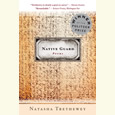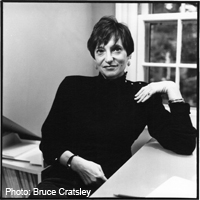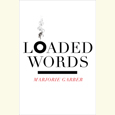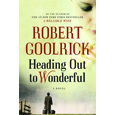On the Beach, On the Road, On Top of the Bestseller List
John Grisham is heading to Memphis
John Grisham recently appeared at Parnassus Books in Nashville to sign his new novel, Camino Island, and to help raise money for Humanities Tennessee. It’s Grisham’s first big book tour in twenty-five years. Along the way he’s also making a limited-run podcast, including conversations with bookstore owners and other authors, called Book Tour with John Grisham. It is available at iTunes and Google Play.

Just before his event at Parnassus, we sat down to chat while the bookstore staff finished setting up the store to host 200 ardent—and lucky—Grisham fans who managed to snag a reservation for the sold-out event. We spoke about Grisham’s charitable works for both the humanities and The Innocence Project, as well as his new book.
Camino Island is the perfect beach read. Protagonist Mercer Mann is a cash-strapped writer in her early thirties who has been enlisted by an insurance company to help get information about five stolen manuscripts for F. Scott Fitzgerald’s novels. The man thought to be fencing the manuscripts is playboy bookstore owner and rare-book collector Bruce Cable. Mercer must return to her childhood summer retreat of Camino Island (a stand-in for real-life Amelia Island) to confront painful memories (and writer’s block) as she works to uncover information about these priceless pieces of American literary history.
What follows is a lightly edited excerpt from the full podcast interview, which can be heard here.
Chapter 16: Camino Island kicks off with a heist. Have you heard from Princeton University about what they think of your burgling their library?
John Grisham: I keep waiting to hear from Princeton, and to my knowledge I’ve heard nothing. I don’t know if Doubleday, my publisher, has heard anything, nor my lawyers. I hope they have a sense of humor; I think they probably do. I put a nice disclaimer in the back of the book.
Chapter 16: Why did you pick the Fitzgerald manuscripts?
Grisham: I collect first editions. I have a number of Faulkners, Steinbecks, and Hemingways. Fitzgerald only had five [novel] manuscripts but a ton of short stories, which he was better known for when he was alive. After his death, Gatsby became his big masterpiece and his best-known work.
But Faulkner had forty books, forty manuscripts. They are all stored in one place, at the library at the University of Virginia. I’ve seen them; they’re very well taken care of. But there are forty of them; they would be kind of hard to steal. Hemingway’s stuff is scattered, as is Steinbeck’s. And that left Fitzgerald. As I learned when I was doing the initial research, all five manuscripts are in one place, at the Firestone Library at Princeton. If you’re going to steal stuff that’s truly priceless, that’s a good place to start.
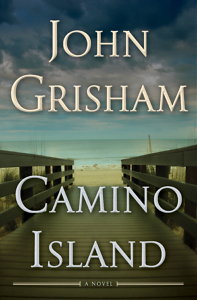 Chapter 16: In Camino Island there’s a lot of talk about the monetary value of first editions, but on this tour, and for this stop at Parnassus Books, you are talking more about the societal value of literature, especially in helping to raise money for Humanities Tennessee.
Chapter 16: In Camino Island there’s a lot of talk about the monetary value of first editions, but on this tour, and for this stop at Parnassus Books, you are talking more about the societal value of literature, especially in helping to raise money for Humanities Tennessee.
Grisham: My wife and I have a little foundation; we write all the checks ourselves. We emphasize the humanities because that’s what we believe in. We believe in the arts, the written word, and performances. It’s very much a part of our lives.
Chapter 16: In the book, Bruce Cable has five rules for writers. Do you share his opinion on all those rules?
Grisham: I made them up. I keep a list that I don’t look at very often. People in the past have asked for advice, so I’d just email them my suggestions for writing popular fiction. There were fourteen of them [originally]; now there are eight. When I start breaking one of them, I take it off the list, and I’ll think of something else.
Bruce has his own list. He reads four books per week. He’s a big reader, and if a writer comes to his store, he’s going to read their books. But he has no patience with a book he doesn’t like or books that violate his rules. In the course of a conversation one night, over another long dinner, he tells Mercer—not giving advice—just what he doesn’t like. He doesn’t like prologues, dialogue without quotation marks, big words that are artificial, and the rest.
Chapter 16: I share the opinion that you should set off dialogue with quotation marks. Do you think Cormac McCarthy should be the only person allowed to omit quotation marks for dialogue?
Grisham: Yes, Cormac should be the only person allowed to do that. I think he started it. He has his own rules for grammar and writing. He’s Cormac. He can get by with that; the rest of us can’t.
To download the full podcast click here. To listen online, click the play button below:

[This article appeared originally on June 29, 2017. It has been updated to reflect new book and event information.]
Stephen Usery is the producer of Book Talk, an author-interview program that airs Sunday-Friday on WYPL FM 89.3, a service of the Memphis Public Libraries. He lives in Memphis.

